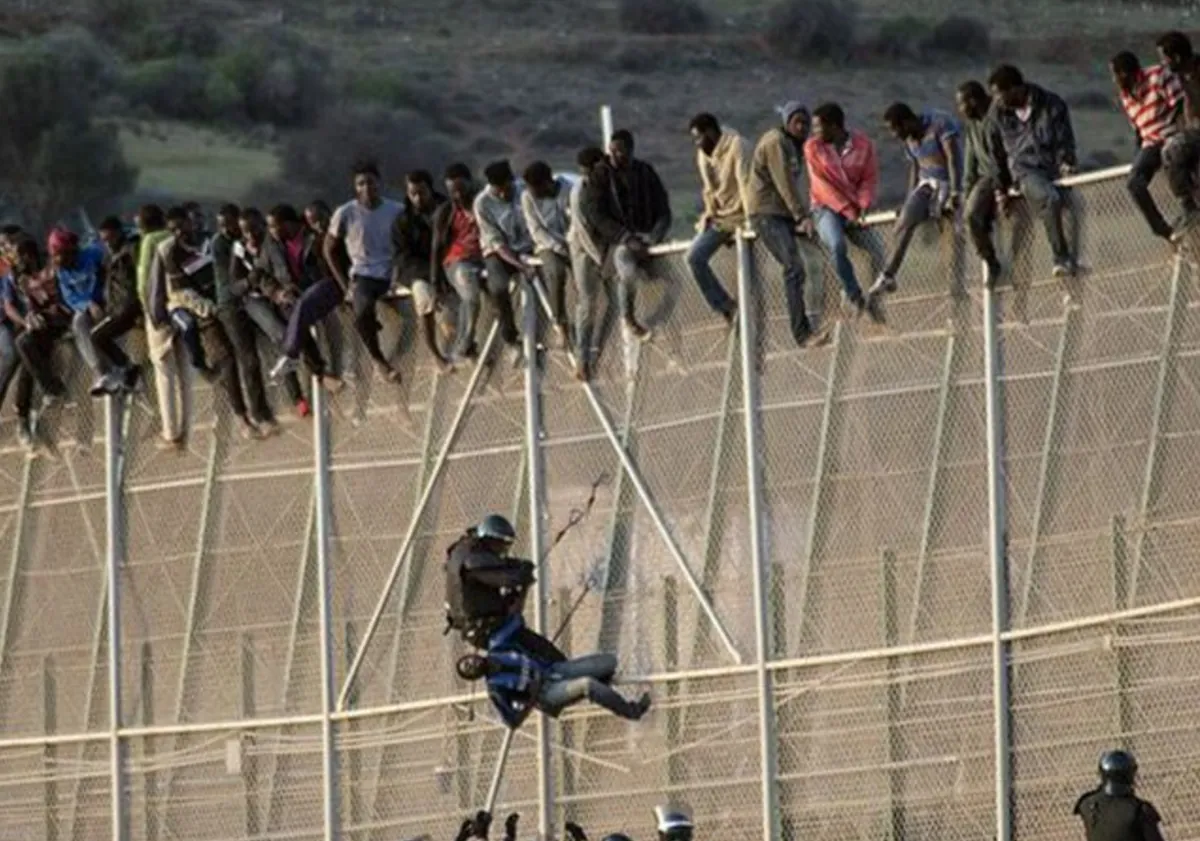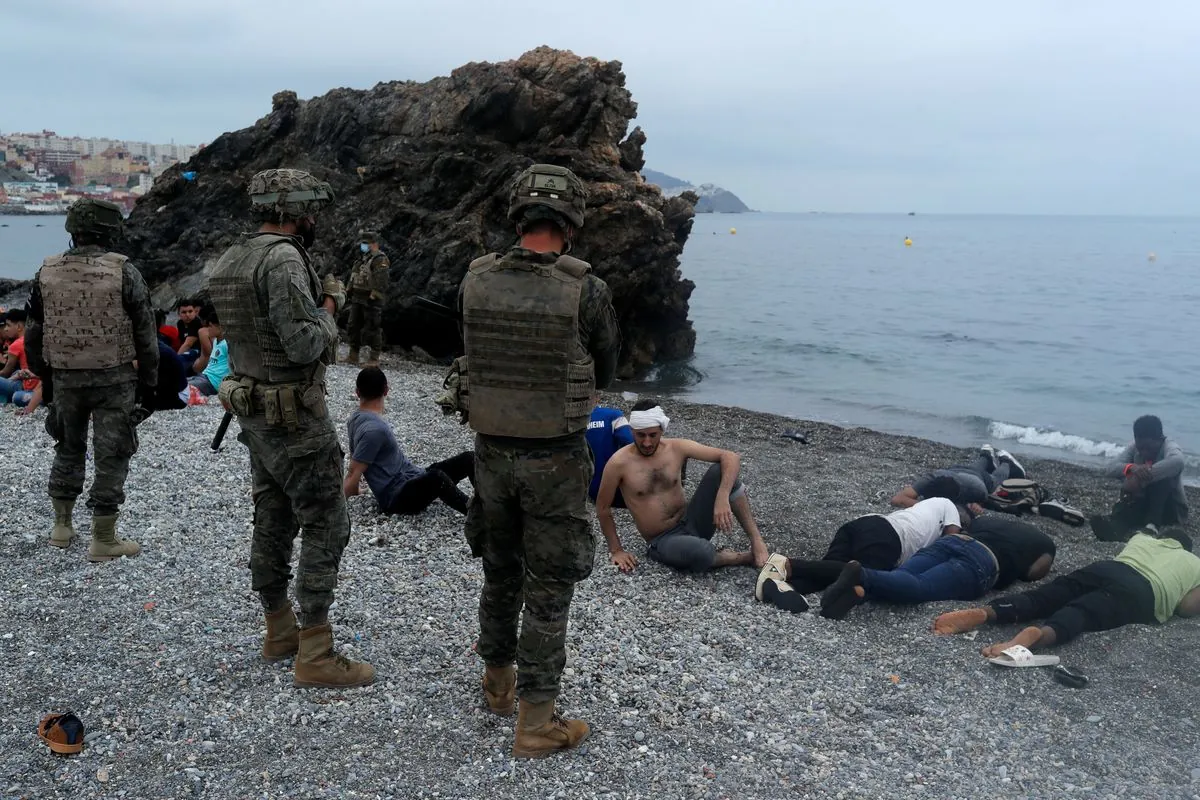Morocco Thwarts Mass Migration Attempt into Spanish Enclave Ceuta
Moroccan authorities prevented a coordinated attempt to breach the border into Spain's North African enclave of Ceuta. The incident, prompted by social media calls, led to arrests and heightened security measures.

In a recent development, Moroccan security forces successfully prevented a coordinated attempt by groups of individuals to enter Spain's North African enclave of Ceuta. This action came in response to social media calls for a mass migration event, highlighting the ongoing challenges faced by authorities in managing border control in this region.
Ceuta, a Spanish territory on the African continent since 1668, has long been a focal point for those seeking entry into Europe. The enclave, with a population of approximately 85,000, is separated from Morocco by an 8.4 km long border fence, which has become a symbol of the complex geopolitical situation in the area.
Spanish authorities reported that while some individuals attempted to breach the border fence, none successfully entered Spanish territory. The Spanish Interior Ministry stated that collaborative efforts between Spanish and Moroccan security forces in recent days "allowed the situation to be brought under control."

In response to the incident, Moroccan intelligence agency DGSN announced the arrest of 60 individuals suspected of using social networks to incite the mass migration attempt. This action underscores the growing role of social media in organizing such events and the challenges it presents to border security.
The situation in Ceuta is part of a broader pattern of migration attempts in the region. Moroccan authorities report that from January to early September 2024, they have prevented over 45,000 migration attempts nationwide. This includes more than 11,000 in the area around Ceuta and an additional 3,000 near Melilla, another Spanish enclave in North Africa.
Ceuta and Melilla, as the only European Union territories on mainland Africa, have become key targets for migrants and refugees seeking better opportunities in Europe. These enclaves, which are not part of the Schengen Agreement, present unique challenges in terms of border control and migration management.
The strategic importance of Ceuta extends beyond its current role in migration issues. With a history dating back to Carthaginian times, the enclave has long been valued for its location. Today, Ceuta's economy heavily relies on its port and military base, operating under a unique tax system different from mainland Spain.
Last month's incident, where thousands attempted to cross into Ceuta, including hundreds of young people trying to swim around controls, highlights the desperate measures some are willing to take. This situation reflects the significant wealth disparity between Ceuta and neighboring Moroccan territories, considered one of the most unequal border regions in the world.
As authorities continue to grapple with these challenges, the situation in Ceuta remains a complex issue involving human rights, border security, and international relations. The ongoing efforts to manage migration in this region underscore the need for comprehensive and collaborative approaches to address the root causes of migration and ensure the safety and dignity of all individuals involved.


































